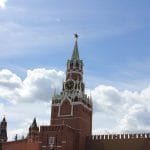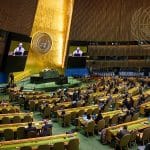Brussels cast a thin Italian-flavoured political lifeline to North Macedonia’s Prime Minister Zoran Zaev over the last ten days, something sorely needed after Zaev had badly managed his public reactions in the period immediately after the EU Summit where France froze all discussions of immediate EU Enlargement, effectively excluding Albania and North Macedonia.
Political support to Skopje with an Italian accent
In a joint press-conference with Zaev who visited Rome on October 29, Italian Prime Minister Giuseppe Conte said that his country would support North Macedonia firmly and that it would work to find a formula to initiate EU membership negotiations for the country. Conte noted that North Macedonia had shown courage in terms of resolving open issues, which had already opened the path for the country’s early NATO membership. Conte cautioned Zaev however that his country’s support would not mean immediate EU integration and explained that would happen only after negotiators have formally worked through the full 35 required chapters.
On his first official foreign trip, President of the European Parliament David Sassoli visited North Macedonia on November 4-5 where met with Zaev, President Stevo Pendarovski, Parliament Speaker Talat Xhaferi, and other government officials. A similar Sassoli trip to Albania has been scheduled for December 2-3.
Sassoli tried to cast the EU Summit’s deadlock on EU Enlargement in a positive light, characterizing it as a minor obstacle. Addressing North Macedonian youth at the opening of the new Europe House in Skopje, Sassoli said “We have a common destiny and a small blockade is not enough to stop our attention towards you, the goal of which is that North Macedonia becomes a part of the European Union. It is a disappointment, but we should have great confidence and hope.”
The European Economic and Social Committee (EESC) issued a strongly worded resolution October 31 expressing deep disappointment with the European Council’s failure October 17-18 to reach a decision on a date to open EU accession negotiations with Albania and North Macedonia. Luca Jahier, President of the EESC is an Italian journalist.
Analysts will be asking whether the Italian interest in supporting Enlargement now reflects the search for more commercial opportunities, especially in the energy sector, or whether other factors are in play. They are also asking whether Italy’s current support for Zaev would continue if power shifts and Matteo Salvini takes over as prime minister, bringing with him a previously expressed affinity for hardline nationalist Nikola Gruevski, the former PM of the country now referred to as North Macedonia.
Italy’s expanding role in the Western Balkans
The expanding Italian role in the Western Balkans can be explained by a multitude of factors, but it seems primarily linked to Italy’s historical relationship with Albania and Albanians. This is understandable in the case of Albania itself, as Italy has long had to deal with trafficking and drug smuggling problems originating there. In the case of North Macedonia, Italy and Italian officials in Brussels may be taking a longer view, being clearly aware of the demographic situation concerning the large Albanian minority that Skopje is so hesitant to measure, having delayed its overdue census by another year for fear of collecting politically inconvenient data. In the long run Italian bridge-building to all the Albanian communities in the Western Balkans may pay off, as it remains hard to predict how and when the borders separating large Albanian communities and states will shift, if ever.
In raw political terms Italy’s current interest in the region should also be viewed as a traditional power vacuum-filling exercise as well, since it remains hard to forecast the political balance in Southeast Europe between France and Germany if and when Brexit is completed.This is certainly not an opportunity that deeply-indebted Greece is currently positioned to exploit with new resources, given that so much energy must be devoted to the Aegean, Cyprus and the refugee crisis. Accordingly, the field is left open to Italy.







